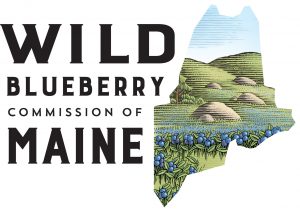Wild Blueberry Commission of Maine

The Commission is not part of the University of Maine, although they are close collaborators on research and educational efforts. It is a state statute dedicated to conserving and promoting the prosperity and welfare of this state and of the wild blueberry industry of this state by fostering research and extension programs, by supporting the development of promotional opportunities, and other activities related to the wild blueberry industry.
To read about the 2024-2025 Research and Extension Priorities and Principles established by the Advisory Committee of the Wild Blueberry Commission of Maine visit the Wild Blueberry Comission of Maine’s website or download The PDF Report.
Wild Blueberry Comission of Maine Contact Info
Address: 5784 York Complex, Suite 52, Orono, Maine 04469-5784
Phone: 207.581.1475 | E-mail: wbcm@maine.edu
Website: www.wildblueberrycommissionofmaine.org
